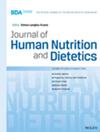Identifying Factors Associated With Breastfeeding Length Among Filipino Migrant Women in South Korea
Abstract
Background
Migrant women becoming mothers often face social, economic, and family challenges that can affect their dietary and breastfeeding practices. This study identified factors associated with breastfeeding length in migrant women.
Methods
The study sample involved 504 migrant women from the Filipino Women's Diet and Health Study (FiLWHEL) in 2014–2016. Two-hundred-seventy women who had completed information on demographic characteristics, 24-h dietary recall, breastfeeding, parity, and health conditions were included in the analysis. Multivariable logistic and linear regression models were applied to identify significant factors associated with breastfeeding length cross-sectionally.
Results
The median (interquartile range [IQR]) for age was 35 (30, 40) years, and the mean body mass index (BMI) was 23.8 kg/m2; 62 women (23%) were breastfeeding for at least 1 year, with the median (IQR) length of 4 (1, 10) months per child. The median (IQR) of the total intake of fruits, vegetables, nuts, and legumes was 165.5 (76.9, 265.9) g/day. Women who consumed the highest tertile of fruits, vegetables, nuts, and legumes compared to those in the lowest tertile were more likely to breastfeed for at least 12 months (adjusted-OR [95% CI]: 2.24 [1.08–4.67]), primarily driven by vegetable consumption (adjusted-OR [95% CI]: 2.34 [1.11–4.93]). Additionally, women in the highest tertile of these food groups or earned an annual income of 20–40 M KRW (~15–30 K USD) appeared to breastfeed longer compared to their counterparts (p < 0.05).
Conclusions
This study suggests that dietary quality and income may impact breastfeeding duration for migrant women in South Korea.


 求助内容:
求助内容: 应助结果提醒方式:
应助结果提醒方式:


